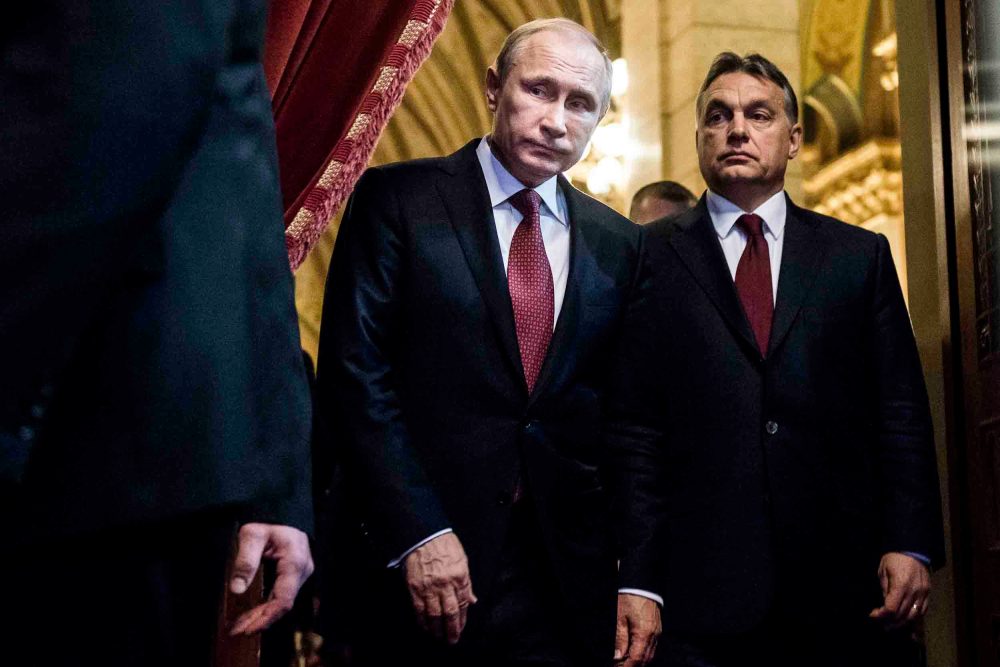At first glance, a recent tweet by Daniel Freund, a longtime critic of Hungarian Prime Minister Viktor Orbán and a member of the European Parliament from Germany’s Green Party, may come off as amusing. It reads: “Orban before elections: ‘We are super neutral. We want peace etc.’ Orban after elections: ‘Just kidding. Ukraine is the enemy.’”
Orban before elections:
— Daniel Freund (@daniel_freund) April 6, 2022
‘We are super neutral. We want peace etc.’
Orban after elections:
‘Just kidding. Ukraine is the enemy.’ https://t.co/BXoMKkGKaE
But the situation it describes — a strongman who won re-election by claiming it was in Hungary’s interests to stay out of Russia’s war on Ukraine, only to call Ukrainian President Volodymyr Zelenskyy an “opponent” the next day, along with “the international left” and “the Soros empire” — is all too serious.
Empowered by his solid win over the opposition, Orbán will likely become more repressive at home and enjoy an enhanced reputation abroad as a more palatable alternative to Russian President Vladimir Putin. That’s bad news for democracy, and not only in Hungary.
Orbán will likely become more repressive at home and enjoy an enhanced reputation abroad as a more palatable alternative to Russian President Vladimir Putin.
It’s unsurprising that Republican luminaries from Donald Trump to Rep. Marjorie Taylor Greene to Tucker Carlson rushed to congratulate Orbán on his victory, along with their far-right foreign counterparts, like Nigel Farage in the United Kingdom, Marine Le Pen in France and Matteo Salvini in Italy. Russia’s recent invasion of Ukraine has made some Republican politicians think twice before praising Putin, but no such roadblock exists when it comes to Orbán. The GOP and its media allies, like Carlson, have long held up Hungary’s electoral autocracy as a model of politics they would like to implement in America. Carlson broadcast from there for a full week last year, fawning over Orbán, and the Conservative Political Action Conference is scheduled to convene there next month.
Hungary’s election was closely watched by those like me who study how to unseat autocrats. Six parties, including Orbán’s former allies from the right-leaning party Jobbik, came together to try to beat the incumbent. By including Jobbik and choosing a Christian conservative as its prime ministerial candidate (Péter Márki-Zay), the coalition hoped to attract voters from the right.

That backfired, showing how years of rule by a right-wing demagogue can polarize a population. Not wanting to move to the center, two-thirds of Jobbik voters abandoned their party and the coalition it joined. They instead voted for Orbán’s party, Fidesz, or for an even more extreme party, the neo-fascist Our Homeland. Orbán won’t only have a supermajority in the Hungarian parliament; 76 percent of the seats will be filled by right-wing politicians.
The opposition might not have prevailed no matter what it had done given the efficient electoral autocracy Orbán has created. This 21st century strongman approach entails keeping a veneer of democracy going while gaming the electoral system in ways that give it the edge. Gerrymandering, threatening voting officials and capturing the media and the judiciary make it difficult for the opposition to reach voters on television. Any legal challenges to victories by the leader and his candidates are defeated or dismissed.
The result, as David Baer, an expert on Hungarian politics, notes, is a political climate that makes it hard for any opposition to prevail. The deck is stacked against it before the election even begins.
Orbán’s victory matters because the longer authoritarian leaders stay in power, the more despotic they become.
The Organization for Security and Co-operation in Europe, which includes free elections in its mandate and sent a record number of monitors to Hungary, concurred. The election may have been well-managed, it found, with little visible evidence of fraud, but it was certainly not fair. The opposition’s lack of media meant there was “no level playing field.” Opposition candidate Márki-Zay, for example, had not been invited on national Hungarian television since 2019.












